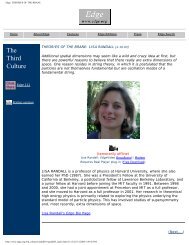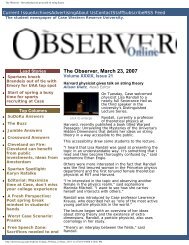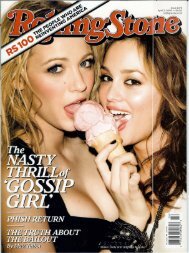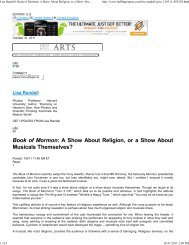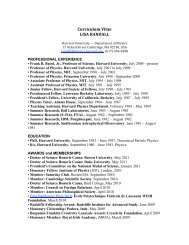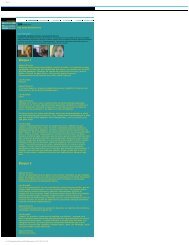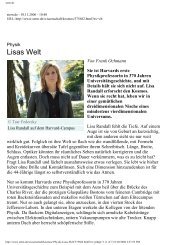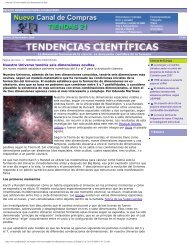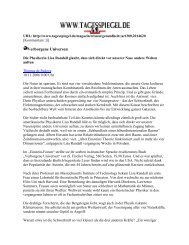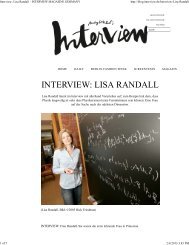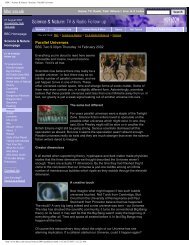BBC - Science & Nature - Horizon - Parallel Universes - Transcript
BBC - Science & Nature - Horizon - Parallel Universes - Transcript
BBC - Science & Nature - Horizon - Parallel Universes - Transcript
- No tags were found...
Create successful ePaper yourself
Turn your PDF publications into a flip-book with our unique Google optimized e-Paper software.
<strong>BBC</strong> - <strong>Science</strong> & <strong>Nature</strong> - <strong>Horizon</strong> - <strong>Parallel</strong> <strong>Universes</strong> - <strong>Transcript</strong>BURT OVRUT: Five, even though it's not a very large number, is too large for usbecause we would like to have a more unique theory than that and this definitelywas a problem, was a great crisis, so a lot of time was spent studying thoseindividual five theories, but in the back of our minds always was why are there fiveof these things, shouldn't there only be one?NARRATOR: String Theory had begun to unravel. It seemed as if the dream of aTheory of Everything was as far away as ever.MICHIO KAKU: Cynics began to come out and say that String Theory is too hard,it's a dead end, it's simply not the way to go and it's not the Theory of Everything,it's the theory of nothing.NARRATOR: But just as the scientists were about to give up hope, a new andstartling discovery would be made. This would inspire them to begin their questagain and force them at last to confront their least popular ides: parallel universes.When String Theory fell apart, not everyone was distraught. Some people evenseemed to relish the fact.MICHAEL DUFF (University of Michigan): If String Theory really was this so-calledTheory of Everything five theories of everything seems like an embarrassment ofriches.NARRATOR: Michael Duff had been the rising star of an earlier idea called supergravity. String Theory had displaced it and almost destroyed Duff's career.MICHAEL DUFF: Physics tend to be dictated by fad and fashion. There are thegurus who dictate the direction in which new ideas grow. It was a very lonely timein many ways. When I tried to get graduate students interested many of themwould say well look, you may be right and you may be wrong, but if I work in supergravity I'm not going to find a job.NARRATOR: What made the experience of the super gravity guys so galling wasthat their theory wasn't so very different from String Theory to begin with. In fact,the main disagreement between them was a point of detail which, to outsiders,could seem like nitpicking. It was about the number of dimensions in the Universe.We normally think of ourselves as living in a three-dimensional world. We canmove in three ways: left or right, up or down, and forwards and backwards, butphysics liked adding extra dimensions. Einstein suggested time should be a fourthdimension. Then someone suggested a fifth special dimension and then a sixth.The numbers just kept growing. The extra dimensions were spaces in the Universewhich we could never perceive. Most were microscopically small, but scientistsbelieved they were really there. String Theory had been convinced there were intotal exactly 10 dimensions.BURT OVRUT: Now if you have a little oscillating string it has to have enough roomto oscillate properly and when one works this out mathematically you find it, it justgot a very clear answer. It had to be in 10 dimensional space.MICHIO KAKU: Ten dimensions.BURT OVRUT: Nine spatial dimensions and one time.NARRATOR: Super gravity though had been convinced there were exactly elevendimensions.MICHAEL DUFF: The equations of super gravity took their simplest and mostelegant form when written in this 11 dimensional framework.http://www.bbc.co.uk/science/horizon/2001/parallelunitrans.shtml (4 of 11)8/27/2007 11:12:58 AM



